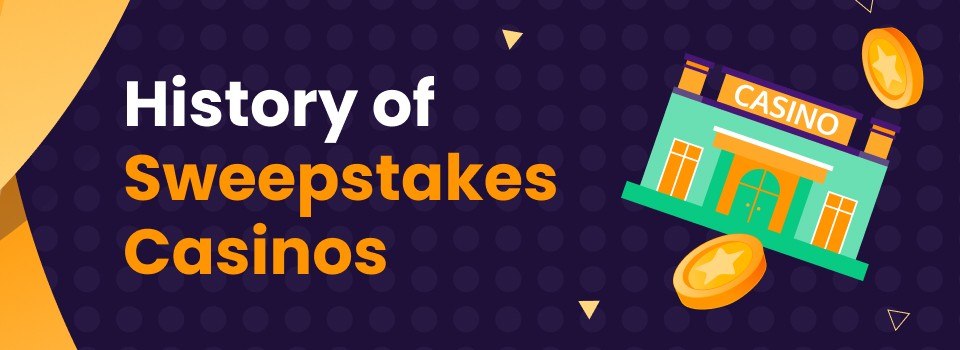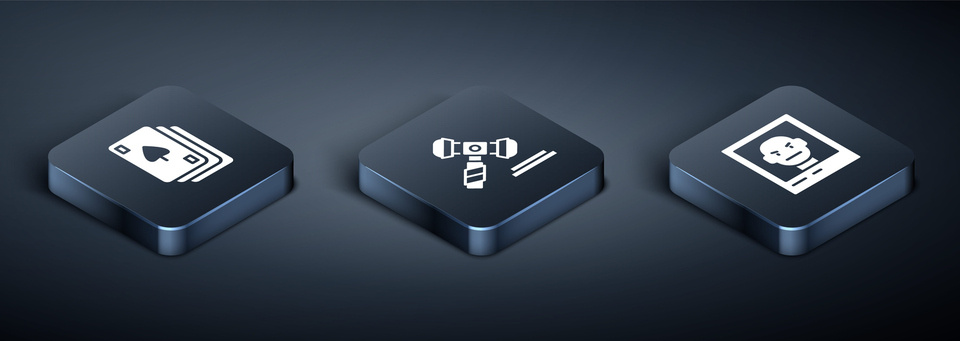
Early Origins of Sweepstakes
Sweepstakes-style promotions can trace their roots to very old civilizations, with early models appearing as far back as 100 BCE during the Roman Empire, where lotteries were used to share gifts during public festivals. These were not commercial enterprises but rather tools of social goodwill. Emperors like Augustus would organize games of chance to boost popularity, often rewarding attendees with silverware, slaves or food. These were state-sanctioned events, resembling today’s promotional sweepstakes in their random prize distribution model.
The term ‘sweepstakes’ itself comes from polo (a horseback game), where the ‘stakes’ were swept into a collective pot. By the 18th century, in the United Kingdom, sweepstakes began referring to raffles and prize draws that collected entry fees. But the modern legal and promotional sweepstakes format emerged much later in the United States.
The Rise of Commercial Sweepstakes in the US
By the mid-to-late 1800s, American companies began to use sweepstakes as a marketing strategy, particularly through mail-in promotions tied to consumer goods. Brands realized that giving customers an opportunity to win prizes increased product engagement. This strategy was especially popular among tobacco, soap and cereal companies.
Three Pivotal Developments in US Sweepstakes History:
- Proof-of-purchase contests (late 1800s): Companies like Dr. Miles’ Nervine Co. ran prize draws requiring bottle cap returns or box tops as entries. This practice drove repeat purchases while collecting customer information, which is a precursor to today’s data-driven marketing.
- Magazine-based sweepstakes (1920s–1950s): Publications such as Reader’s Digest and McCall’s began hosting national sweepstakes. Reader’s Digest launched one of the most successful sweepstakes in history in 1952, eventually distributing hundreds of millions in prizes. These contests had massive reach, coupled with emotionally appealing prizes like ‘dream homes’ and luxury cars.
- Postal and legal challenges (1930s–1940s): The growth of direct-mail sweepstakes sparked legal debate. In 1934, the United States Postal Inspection Service declared certain contests and lotteries illegal. To comply, companies introduced the ‘no-purchase-necessary’ clause, allowing for free alternative entry methods. This became a crucial part of all legally-compliant sweepstakes going forward.
By the 1960s, sweepstakes had become an integral part of American consumer life. The introduction of television led to the introduction of new formats for promotional sweepstakes. Game shows like The Price Is Right and Queen for a Day offered real-time prize draws, effectively bringing the sweepstakes format into living rooms across the country.
Throughout these phases, the key components of a legal sweepstakes were refined: prize, chance and free participation. These principles remain the core till today, especially in online models where compliance with federal sweepstakes law depends heavily on offering a non-paid entry route.
These historical developments laid the legal and cultural foundation for modern sweepstakes casinos, which offer random prizes without requiring monetary risk, but still maximize engagement through the thrill of probabilities.
Legal Framework and Evolution

Sweepstakes casinos became legally active in the US after the 2006 Unlawful Internet Gambling Enforcement Act (UIGEA), which limited online gambling by targeting payment processors rather than the players or operators directly. UIGEA made it illegal for financial firms to process transactions tied to unlawful internet gambling, effectively phasing many traditional online casinos out of the US market. However, the law created a loophole; one that sweepstakes casinos would soon exploit by working around these restrictions through promotional gaming models.
What UIGEA Actually Banned
Contrary to popular talk, UIGEA did not ban online gambling outright. Instead, it clamped down on the facilitation of financial transactions tied to bets or wagers on games that are unlawful under federal or state law. This meant platforms could still operate legally if they didn’t breach the legal definition of ‘gambling.’
The Legal Vacuum: Sweepstakes Laws
Sweepstakes casinos avoid being classified as gambling by following three main rules:
- No purchase required: Users must have a free way to enter and play, typically via daily login bonuses or mail-in entries
- Prizes are predetermined: Wins are determined by chance, but not influenced by purchases
- Dual currency model: Players use two types of tokens. Gold Coins (for fun) and Sweeps Coins (for prizes)
This is similar to traditional marketing sweepstakes, which are regulated under federal promotional laws and are outside of UIGEA’s scope.
What Makes it Different From Real Gambling?
Traditional online gambling involves three elements: consideration (paying to play), chance, and a prize. Sweepstakes casinos remove the ‘consideration’ element. This explains why companies like VGW Holdings (which runs Chumba Casino and Global Poker) can operate with legal backing across most of the US.
States define gambling differently, so compliance hinges on these distinctions. For example:
- California, Texas and Florida allow sweepstakes casinos as long as they meet promotional law standards
- Washington and Idaho prohibit sweepstakes-style platforms altogether
- New York permits them, with strict no-purchase enforcement
How Mail-In Entries Work
To comply, sweepstakes casinos typically allow players to submit requests for Sweeps Coins via physical mail. This fulfills the ‘free entry’ requirement under 50 U.S.C. § 3001 and ensures the casino doesn’t rely solely on purchase-based access.
For instance, Chumba Casino users can send a standard-size envelope containing their name, address and email to a designated mailing address to receive free Sweeps Coins, typically 5 SC per request.
Legal Precedents and Case Law
The model has faced legal scrutiny but has withstood most challenges. In 2025, a class-action lawsuit by spouses of addicted players was filed against VGW Holdings in Montana, alleging that the company was running an online casino with real money prizes under a sweepstakes model to deceive unsuspecting players.
To stay protected, companies now include comprehensive and detailed disclosures in their terms of service, execute clear opt-in systems and use third-party auditing tools for random prize allocation.
Technological Advancements

The development of sweepstakes casinos would not have been possible without the corresponding growth of the internet, cloud computing, mobile devices and real-time gaming engines. These technologies allowed sweepstakes platforms to provide casino-style games with the aesthetics and interactivity users expect, while operating within legal boundaries.
Cross-Platform Accessibility
One of the biggest leaps came with the advent of HTML5 technology, which replaced Flash and allowed smooth gameplay on both desktop and mobile browsers. This removed the need for downloadable software or native apps, reducing friction for users and helping platforms stay in alignment with Google and Apple’s app store policies.
Players could now access sweepstakes casinos from:
- Desktop computers
- Android and iOS mobile browsers
- Smart TVs with browser support
Cloud and Server Technology
Cloud-based backend infrastructure enabled sweepstakes casinos to scale rapidly, ensuring smooth gameplay even as user bases grew exponentially. Games are hosted on secure, distributed servers with real-time syncing of account balances, gameplay stats and rewards.
Some advantages include:
- Scalability: New users can join instantly, without disrupting load times
- Security: Encryption protocols secure transactions and personal data
- Fraud detection: AI-driven systems flag unusual activity or abuse of bonuses
Game Development and Graphics Quality
Modern sweepstakes casinos rival traditional casinos in terms of graphics experience. Companies invest in:
- 3D animation: Used in slot reels, avatars and bonus rounds
- Licensed themes: The different themes like mythology or pop attract diverse audiences
- Sound design: Immersion can be enhanced by the use of realistic sound effects
Platforms like LuckyLand Slots and Chumba Casino offer several slot variants, blackjack, roulette and video poker, all with highly responsive touch interfaces and smooth performance.
Secure Payment and Wallet Systems
Even though players don’t buy Sweeps Coins directly, they can get Gold Coins, which may also include bonus Sweeps Coins. Secure payment integration is non-negotiable.
Casinos work with PCI-DSS-compliant processors like Stripe, Paysafe and Skrill to ensure transactions are encrypted and fast. Some platforms also support:
- Apple Pay
- Google Pay
- Prepaid cards
- Instant bank transfers
Payouts of redeemed Sweeps Coins are usually processed within 3–5 business days via ACH (automated clearing house) or electronic check (e-check).
Mobile-Responsive Design
Today, 78% of sweepstakes casino traffic comes from mobile users, according to a 2024 survey. This has prompted developers to prioritize mobile user experience. Key features include:
- Tap-friendly buttons.
- Auto-rotation lock.
- Battery-saving modes.
- Push notification systems for bonuses.
Push features are very necessary as they remind players of daily free Sweeps Coin drops, jackpot games and tournament invites.
Growth and Popularity
Sweepstakes casinos became popular because they gave people a way to play casino-style games legally, even in states where real-money gambling is banned. Since 2006, when the UIGEA caused disruptions to the online gambling market, sweepstakes casinos have found a growing audience, especially in the United States.
Five Reasons Sweepstakes Casinos Took Off

- Legal in 46 states: As of 2025, sweepstakes casinos can legally operate in 46 US states. Only Connecticut, Washington, Montana, and Michigan have active bans. However, other states have some restrictions on sweepstakes casino operators and the situation is developing.
- Free entry methods available to all: Platforms like Chumba Casino and LuckyLand Slots offer free Sweeps Coins through mail-in entries or daily login bonuses. You don’t need to spend any money to play or win cash prizes.
- Payouts in real money: Sweeps Coins can be redeemed for real money. For example, 1 Sweeps Coin equals $1 USD. Winnings can be cashed out via bank transfer or digital wallets, usually within 3 to 5 business days.
- Top platforms have millions of users: Chumba Casino has 1 million daily players as of 2025, according to their website. Global Poker reached 800,000 monthly active users that same year. LuckyLand Slots reported 600,000 users during its last quarterly update.
- Social play features drive engagement: Players can join daily tournaments, climb leaderboards and share wins on social media. This makes the experience more exciting and competitive without needing to gamble real money.
Regulatory Developments

Sweepstakes casinos follow different laws than traditional online gambling because they fall under promotional sweepstakes rules instead of gaming regulations. This means each US state can decide how they treat them.
Five Legal Facts You Should Know
- UIGEA does not ban sweepstakes casinos: The Unlawful Internet Gambling Enforcement Act of 2006 only bans payment processors from handling illegal gambling transactions. Since sweepstakes casinos offer free entry, they are not considered gambling under UIGEA.
- FTC monitors all sweepstakes promotions: The Federal Trade Commission requires all sweepstakes to follow specific rules. These include showing clear odds of winning, offering a no-purchase-necessary option and avoiding false advertisements.
- 46 states currently allow sweepstakes casinos with four explicit exceptions:Washington – RCW 9.46.240 explicitly classifies dual‑currency sweepstakes (like Chumba/LuckyLand) as illegal gambling—state regularly enforces this ban. Connecticut – SB 1235/Public Act 25‑112, signed by Gov. Lamont—criminalizes unlicensed sweepstakes and simulated casino or sports wagering, except for grocery cross‑promos. Classified as Class D felony, effective Oct 1, 2025 Michigan – The Michigan Gaming Control Board interprets dual‑currency sweepstakes as unlicensed gambling; it’s explicitly banned through rule enforcement and legal interpretation (consumer alerts & cease-and-desists against operators). Montana – SB 555, signed by Gov. Gianforte—bans any online sweepstakes casino (including dual‑currency formats) under internet gambling law. Effective Oct 1, 2025. Violations carry felony charges, up to $50k fine and 10 years in prison
- Mail-in entries must follow postal law: According to 39 US Code § 3001(k), any sweepstakes offered using mail must allow free entry without purchase. Platforms like Chumba Casino obey this by requiring players to mail a handwritten request with full name, address and email to a specific US address.
- IRS taxes must be paid on winnings: Any player who wins over $600 in a calendar year is issued a 1099-MISC form. This is reported as ‘other income’ and is taxed by the Internal Revenue Service (IRS) under federal income tax laws.
Current Legal Challenges Faced by Platforms
- VGW Holdings Lawsuit – Montana (2025): In April 2025, a class action lawsuit was filed by spouses of addicted gamblers in Montana, accusing the company of running an online casino for real-money gambling under the guise of a sweepstakes platform.
- LuckyLand/Chumba Player Dispute – Kentucky (2022): A player named Amy Jo Armstead filed a complaint claiming a violation of gambling rules and regulations by selling virtual coins. The platform responded by updating their terms of service, and they had to pay $11.75m to end the class action suit.
- Michigan shuts down Golden Heart Games operations (2023): The department of the attorney general in 2023 told Golden Heart operations that it was breaking the rules by offering gambling services without being licensed by the state regulator, the Michigan Gaming Control Board (MGCB).
- New York issues a cease-and-desist for sweepstakes operators (2025): NY AG cracks down on 26 online sweepstakes casinos for illegal gambling.
- Connecticut Senate Bans Sweepstakes Casinos (2025): The Connecticut Senate has unanimously passed a bill to ban sweepstakes casinos and simulated gambling games.
- Louisiana’s SB 181 takes aim at sweepstakes casinos (2025): The bill also targets affiliates, and vendors with steep fines and broad liability.
Four Compliance Measures Used by Casinos
- Age verification systems: All users must be 18+ and submit identity documents to be able to withdraw.
- Game auditing tools: Platforms use certified RNG (random number generator) software reviewed by third-party labs.
- Privacy compliance: Operators follow CCPA, GDPR and other regional data laws.
- Transparent terms of use: Legal disclaimers and game odds are displayed clearly on each site.
As the industry grows, regulation is likely to tighten. But for now, these casinos are surviving legal problems by following every federal and state rule to the letter.
Current Trends & Future Outlook

Sweepstakes casinos in 2025 are adding new games, better technology and fresh ways to keep players excited. These platforms are no longer just about slot machines – they now offer more types of games, use smart marketing and include social features that make them feel like real casinos.
Three Popular Trends in Sweepstakes Casinos Right Now
- Live dealer games are being tested: In recent years, McLuck has added a live dealer poker table to its player offerings. It also uses Sweeps Coins and allows players to chat in real time. Chumba Casino is also working on live blackjack and roulette games using the same model. We are likely to see more platforms jump on the bandwagon in the near future.
- New games are added every month: Chumba Casino has been launching new slot games since 2023. LuckyLand Slots also keeps adding new themed games. Some of these include titles like Vegas Vibes and Sands of Mystery.
- More players use mobile than desktop: A report from VGW Holdings showed that 78% of Chumba players in 2024 accessed the site using a mobile device. Only 22% used a desktop or laptop. This has pushed developers to concentrate on mobile-first designs.
Future Outlook
Sweepstakes casinos are developing rapidly, but they may face more stringent regulations in the near future. New technology is making them better, but tighter restrictions await.
Three Possible Challenges Ahead
- More regulation could slow growth: If more states start requiring licenses or taxing platforms, some casinos in those areas may reduce bonuses or shut down
- Consumer trust will need to stay high: As more players join, platforms must protect against fraud, keep odds transparent, and honor all cash-out requests. Any scandals could hurt the entire industry
- Real casinos may push back: Land-based and regulated online casinos have started lobbying against sweepstakes models. The argument they present is that these platforms are unfair competition and operate outside traditional gambling laws
In summary, sweepstakes casinos are here to stay, but they are changing fast. With new technology and a higher player concentration, the next few years will shape how big this industry becomes and how strictly it can be controlled and regulated.
References
- Unlawful Internet Gambling Enforcement Act (UIGEA) US Congress, 2006
- USPIS Sweepstakes Promotion Guidelines
- US Postal Code § 3001(k) – Sweepstakes Mail Rules US Government Publishing Office
- IRS Reporting Requirements – Form 1099-MISC for Prizes Internal Revenue Service
- Washington Gambling Commission – Online Gaming Notice
- VGW Holdings Corporate privacy policy
- eCOGRA – RNG Certification Standards
- PCI Security Standards Council
- Smithsonian – Roman Lotteries and Public Games
- IGB -Michigan halts Golden Heart Games operations.
- National Library of Medicine – State by state legal information
- Class action against Chumba casino and LuckyLand slots
